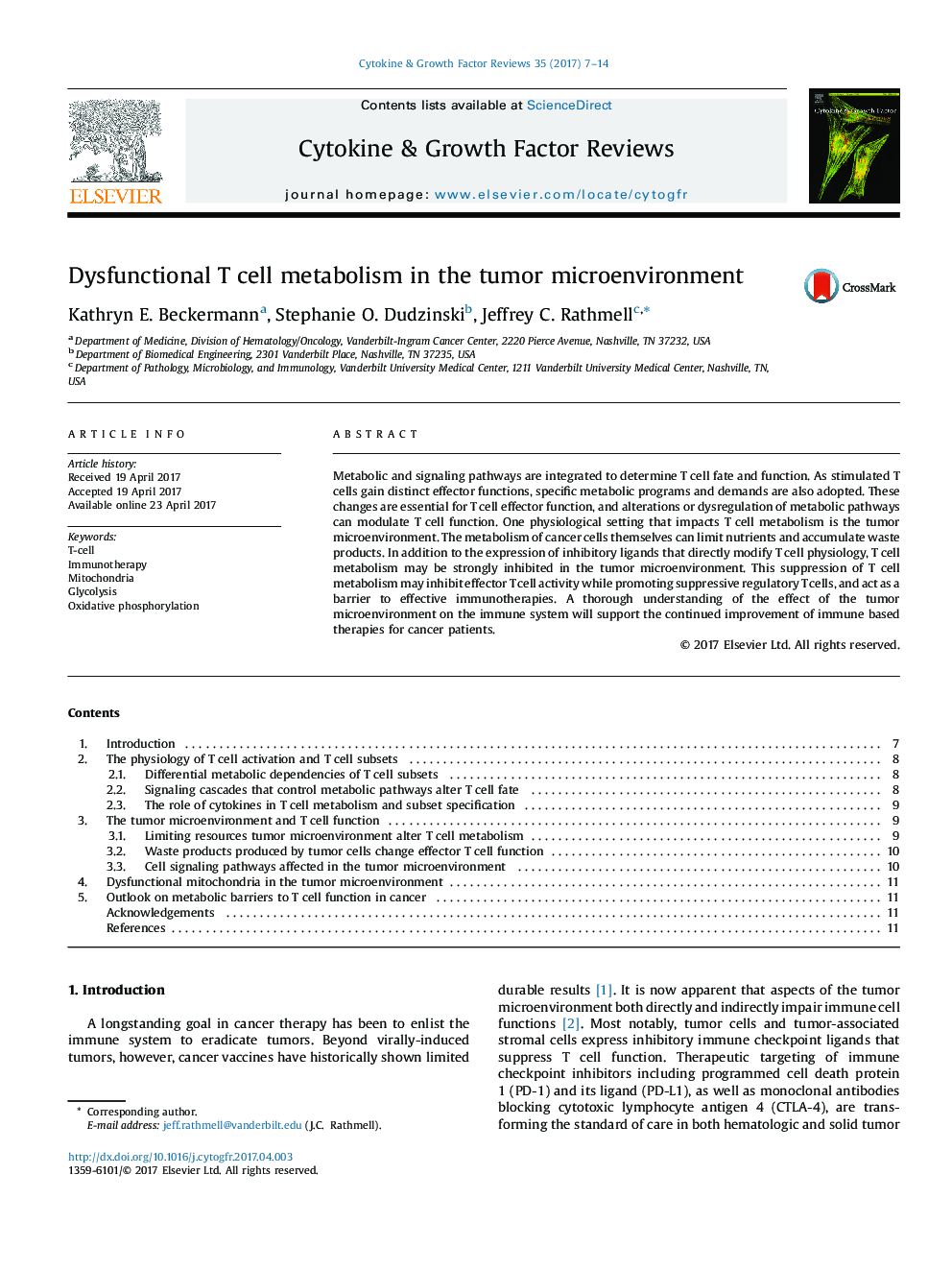| Article ID | Journal | Published Year | Pages | File Type |
|---|---|---|---|---|
| 5531226 | Cytokine & Growth Factor Reviews | 2017 | 8 Pages |
â¢T cell fates are driven by cytokines and coordinate metabolic pathways.â¢The tumor microenvironment is inhospitable for infiltrating lymphocytes by limiting nutrient resources and excretion of inhibitory signals.â¢Current work is seeking to modify T cell signaling and metabolic pathways to work in synergy with current cancer immune checkpoint inhibitor therapy.
Metabolic and signaling pathways are integrated to determine T cell fate and function. As stimulated T cells gain distinct effector functions, specific metabolic programs and demands are also adopted. These changes are essential for T cell effector function, and alterations or dysregulation of metabolic pathways can modulate T cell function. One physiological setting that impacts T cell metabolism is the tumor microenvironment. The metabolism of cancer cells themselves can limit nutrients and accumulate waste products. In addition to the expression of inhibitory ligands that directly modify T cell physiology, T cell metabolism may be strongly inhibited in the tumor microenvironment. This suppression of T cell metabolism may inhibit effector T cell activity while promoting suppressive regulatory T cells, and act as a barrier to effective immunotherapies. A thorough understanding of the effect of the tumor microenvironment on the immune system will support the continued improvement of immune based therapies for cancer patients.
Graphical abstractDownload high-res image (110KB)Download full-size image
